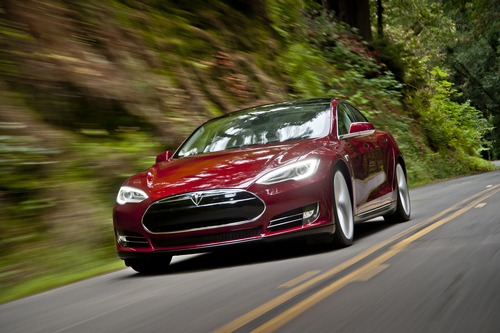In early August I noticed a job listing on Tesla’s Careers area looking for RADAR expertise in the kind of systems (LIDAR etc) used in autonomous vehicles. Now the company is flat out looking for Advanced Driver Assistance Systems (ADAS) Controls Engineer to develop fully autonomous driving.
I’ve written up an analysis of the job posting over on TorqueNews![]() … The job posting itself pretty much says it all. They are simply, plainly, looking to develop autonomous driving for future Tesla models.
… The job posting itself pretty much says it all. They are simply, plainly, looking to develop autonomous driving for future Tesla models.
There’s no guess-work involved, this is simply what they’re doing.
Now the question is – “How Soon”? My guess is that any such features are a few years out.
The Departments of Transportation around the world are going to want a LOT of testing before allowing Robocars to be sold to the public.
Advanced Driver Assistance Systems Controls Engineer
About Tesla
Tesla’s goal is to accelerate the world’s transition to electric mobility with a full range of increasingly affordable electric cars. California-based Tesla designs and manufactures EVs, as well as EV powertrain components for partners such as Toyota and Daimler. In Q1 of 2013 Tesla has delivered more than 10,000 electric vehicles to customers in 31 countries. Tesla’s Model S is the world’s first premium sedan designed and engineered from the ground up as an electric vehicle and was named Automobile Magazine’s 2013 Automobile of the Year® and Motor Trend’s prestigious 2013 Car of the Year®.
The Role
As an Advanced Driver Assistance Systems (ADAS) Controls Engineer, you will be responsible for developing vehicle-level decision-making and lateral and longitudinal control strategies for Tesla’s effort to pioneer fully automated driving. You will also be responsible for developing algorithm validation methods that reduce development time and improve confidence in our strategies.
Responsibilities
Advance Tesla IP and influence future architectures and control algorithms in the area of advanced driver assistance systems
Research, model, design, and help the broader Tesla firmware team implement, debug, and test advanced driver assistance systems control algorithms
Define requirements for hardware and software architectures across the powertrain and vehicle systems to ensure advanced driver assistance systems have appropriate performance and meet functional safety expectations and norms
Requirements
Experience applying advanced control theory to autonomous driving technologies in a research environment
Understanding of advanced driver assistance sensors such as radar, camera, ultrasonic, and lidar, including the measurement and data-reduction, target identification and environmental synthesis, and sensor fusion
System-oriented understanding and experience with vehicle dynamics controls; e.g. brake actuation; torque application; tire characteristics; vehicle kinematics, etc
Model development and data analysis in Matlab/Simulink
Strong communication and preference for working in teams
Awareness of and previous control system analysis of existing ADAS technologies, including adaptive cruise control, automatic emergency braking, lane-following, automated lane changing.
Familiarity with legal compliance requirements for ADAS systems
Experience with automotive communication networks (CAN) and the associated PC tools
Prior experience integrating ADAS control strategies with existing automotive engine, braking, and steering controls interfaces
Capability of delivering high-quality code in an automotive embedded environment; familiarity with automotive communications and debugging tools
· Greater than 5 years’ experience (or PhD thesis) with controls development and validation in the area of Advanced Driver Assistance SystemsBS/MS/PhD in ME or equivalent
- Highway design could decrease death and injury risk, if “we” chose smarter designs - March 28, 2015
- GM really did trademark “range anxiety”, only later to abandon that mark - March 25, 2015
- US Government releases new regulations on hydraulic fracturing, that some call “toothless” - March 20, 2015
- Tesla Motors magic pill to solve range anxiety doesn’t quite instill range confidence - March 19, 2015
- Update on Galena IL oil train – 21 cars involved, which were the supposedly safer CP1232 design - March 7, 2015
- Another oil bomb train – why are they shipping crude oil by train? – Symptoms of fossil fuel addiction - March 6, 2015
- Chevron relinquishes fracking in Romania, as part of broader pull-out from Eastern European fracking operations - February 22, 2015
- Answer anti- electric car articles with truth and pride – truth outshines all distortions - February 19, 2015
- Apple taking big risk on developing a car? Please, Apple, don’t go there! - February 16, 2015
- Toyota, Nissan, Honda working on Japanese fuel cell infrastructure for Japanese government - February 12, 2015











